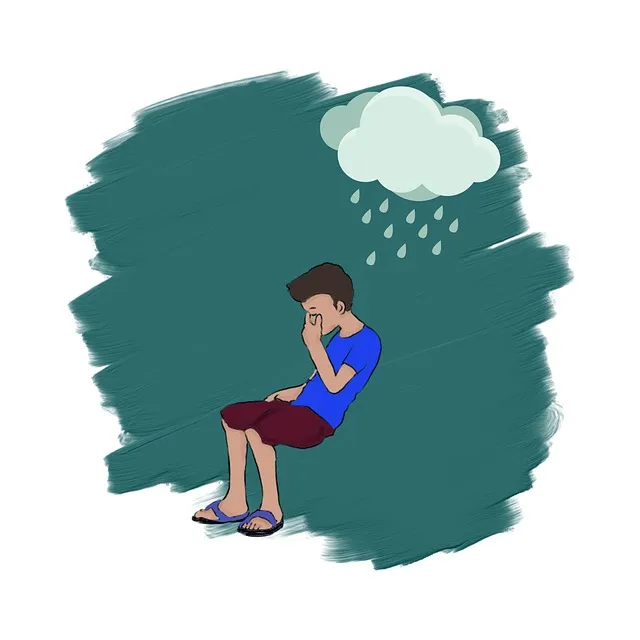The stigma surrounding mental illness is a pervasive societal issue rooted in misconceptions and lack of understanding, affecting individuals and communities. In Wheat Ridge, where Kaiser offers mental health services, community perceptions can hinder access to care. To break down barriers, a multi-faceted approach including comprehensive Mental Health Education Programs, empathy promotion, and self-care routines is necessary. Kaiser's coverage plays a crucial role in reducing stigma and empowering individuals to seek support for conditions like anxiety. Community Outreach initiatives, workshops, seminars, and a podcast series aim to dispel myths and foster open conversations, with an emphasis on cultural sensitivity and burnout prevention for healthcare providers. Advocacy efforts focus on policy reforms to enhance mental health service access, ensuring ready treatment availability for Wheat Ridge residents.
Stigma surrounding mental illness remains a significant barrier to treatment, impacting millions worldwide. This article explores comprehensive efforts to reduce this stigma, focusing on strategies employed in Wheat Ridge, where Kaiser offers vital coverage for mental health services. We delve into the multifaceted approach, encompassing community outreach, education, policy advocacy, and the transformative power of accessible resources like those provided by Kaiser. Understanding the impact of stigma and its origins is crucial to fostering an inclusive society that supports mental well-being.
- Understanding Mental Illness Stigma: Its Impact and Origins
- Kaiser Coverage for Mental Health in Wheat Ridge: A Key Resource
- Community Outreach and Education: Breaking Down Barriers
- Policy Changes and Advocacy: A Collective Effort for Progress
Understanding Mental Illness Stigma: Its Impact and Origins

Stigma surrounding mental illness is a pervasive issue that has profound effects on individuals and communities alike. It often arises from misconceptions and a lack of understanding about what it means to experience mental health challenges. Mental illness, just like physical ailments, is a complex condition that can manifest in various forms, such as depression, anxiety disorders, bipolar disorder, and schizophrenia, among others. When left unaddressed, stigma can lead to social isolation, discrimination, and even hinder individuals from seeking the help they desperately need.
In many cases, the roots of this stigma can be traced back to societal beliefs, historical contexts, and a general lack of mental health education. For instance, in places like Wheat Ridge where Kaiser offers mental health services, the availability of professional support might not be sufficient if the surrounding community holds negative perceptions about mental illness. Thus, addressing stigma requires a multifaceted approach, including comprehensive Mental Health Education Programs designed to raise awareness, promote understanding, and encourage empathy. Additionally, fostering self-care routines that prioritize mental wellness can play a significant role in reducing personal and societal barriers associated with seeking mental health support.
Kaiser Coverage for Mental Health in Wheat Ridge: A Key Resource

In Wheat Ridge, access to mental health resources is facilitated through Kaiser Coverage for Mental Health services. This comprehensive coverage plays a pivotal role in reducing the stigma surrounding mental illness by providing a safety net for individuals seeking support. With dedicated mental health professionals and a range of evidence-based treatments, Kaiser offers effective solutions for managing conditions like anxiety and stress reduction methods. The organization’s commitment to addressing mental health issues head-on is a key step towards fostering resilience building within the community.
Through its inclusive policies, Kaiser empowers individuals to prioritize their well-being without the burden of financial constraints. This accessibility encourages people to seek help promptly, thereby alleviating anxiety and promoting anxiety relief. By embracing such initiatives, Wheat Ridge benefits from a healthier, more supportive environment where mental health is prioritized alongside physical well-being.
Community Outreach and Education: Breaking Down Barriers

In communities like Wheat Ridge, where access to quality mental healthcare is a pressing concern, Community Outreach and Education play a pivotal role in stigma reduction. Organizations and healthcare providers are actively engaging with local residents through various initiatives aimed at raising awareness about mental health issues. These efforts focus on breaking down barriers by providing accurate information about available resources, dispelling myths, and fostering open conversations. By organizing workshops, seminars, and even a Mental Wellness Podcast Series Production, community members gain insights into different aspects of mental wellness and learn how to recognize signs of distress in themselves and others.
Cultural sensitivity in mental healthcare practice is also emphasized during these outreach programs. Understanding the unique needs and perspectives of diverse populations helps in tailoring support systems that resonate with individuals from various backgrounds. Moreover, integrating burnout prevention strategies for healthcare providers ensures that those dedicated to delivering mental health services maintain their well-being, thereby enhancing long-term community engagement. As a result, Wheat Ridge residents have increased access to care, leading to improved outcomes and a more supportive environment for managing mental illness.
Policy Changes and Advocacy: A Collective Effort for Progress

In the ongoing battle to reduce the stigma surrounding mental illness, policy changes and advocacy play a pivotal role in driving progress. Wheat Ridge residents, like many others, have seen the impact of systemic barriers on access to mental health services, such as those provided by Kaiser in their area. This has spurred collective efforts to advocate for policies that improve coverage and care, ensuring resources are readily available when needed. By pushing for policy reforms, communities can help reduce financial burdens and increase accessibility to treatments like those offered at nearby Kaiser facilities.
Advocacy on mental illness stigma reduction goes beyond individual campaigns; it requires a unified front from healthcare providers, policymakers, and the public. This collective action involves raising awareness about the realities of mental health issues, advocating for crisis intervention guidance in schools and workplaces, and promoting burnout prevention strategies within various sectors. Through these concerted efforts, communities can foster an environment where mental illness is met with understanding and support rather than stigma and judgment.
Mental illness stigma reduction is a collective effort requiring multifaceted approaches. By understanding the origins and impacts of stigma, utilizing resources like Kaiser’s coverage in Wheat Ridge for mental health services, engaging in community outreach and education, and advocating for policy changes, we can foster a more inclusive society that supports those facing mental health challenges. Together, these efforts can break down barriers and revolutionize how we perceive and address mental illness.

